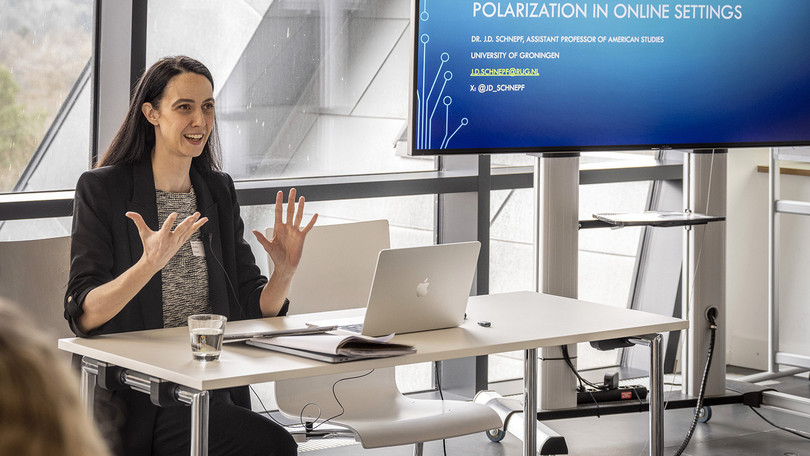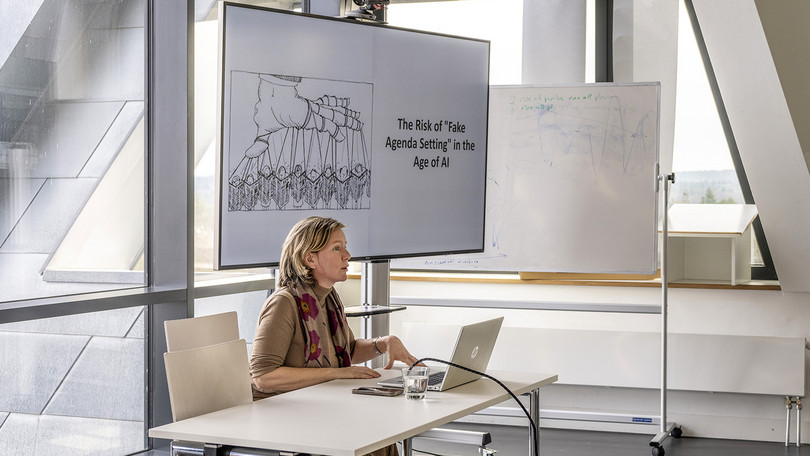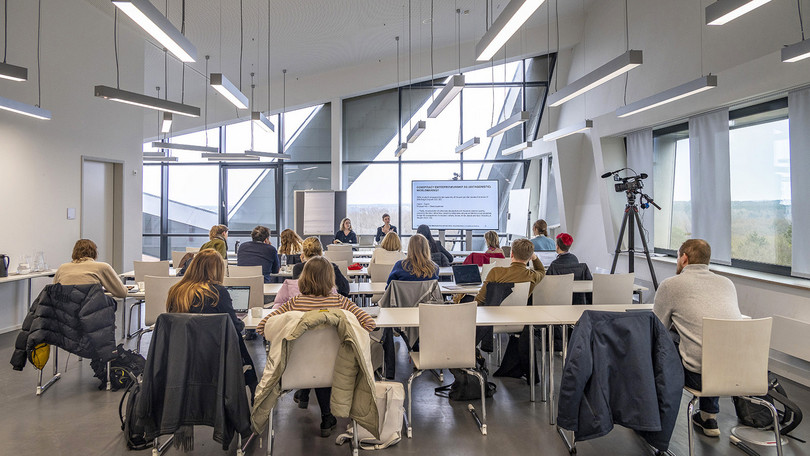Exploring the Organization of Societal Polarization
Workshop of Leuphana Center for Organization and Social Transformation (LOST)
2024-03-27 LIAS Faculty Fellow Boukje Cnossen and PhD candidate Lena Kostuj welcomed Jennifer Schnepf (University of Groningen), Elanor Colleoni (IULM Milan), LIAS Fellow Adrià Alcoverro and members from the Leuphana Center for Organization and Social Transformation (LOST) to explore and discuss different takes on societal polarization in a one-day workshop.
From an American Studies perspective, Jennifer Schnepf took the stage to explore how popular science fiction, in this case, an episode of the Netflix series Black Mirror, portrays societal polarization online. “How does fiction represent the world”, she asked, “and what does it point out about it?” With her intricate analysis, Schnepf pointed towards the gendered dynamics of (social) media and national security practices that draw parallels between the fictional case and our everyday lives.
Moving from fiction to fake news, Elanor Colleoni illustrated how the phenomenon changed the conditions for social evaluations to have a regulating impact on organizations in society and the role of ‘truth’. “AI agents and disinformation have the power to manipulate social evaluations”,she pointed out. “They are implicated in societal polarization processes.” Finally, she gestured towards the motivations behind the sharing of disinformation leaving us with the open question: Why do people spread fake news knowing about their falseness?
In his remote lecture, LIAS Fellow Adrià Alcoverro offered insights into the case of the current president of Argentina Javier Milei. Connecting the political and economic history of Argentina to Milei’s election campaigning, Alcoverro discussed how politicians such as Milei use polarization as a political strategy to move beyond debate and present a deeply neoliberal discourse of no alternatives.
Finally, Hannah Trittin-Ulrbich, Dennis Schoeneborn, Bennet Schwoon, Boukje Cnossen, and Lena Kostuj (LOST) presented ongoing and planned research projects on the topic of societal polarization, investigating communicative practices of polarization in empirically diverse settings such as food cooperatives, media discourses on climate activism, and communities of conspiracy believers.
Bringing together perspectives from multiple disciplines and fostering valuable discussions, the group was left with grappling questions such as: How do we find a common ground for discussion when the meanings attached to words such as ‘truth’ have changed? How can we differentiate between different types of polarization and what implications does that have for our research? This workshop was a first step in a fruitful exchange that the participants hope to continue, in order to gain a better understanding of a concerning phenomenon currently challenging democratic societies.



